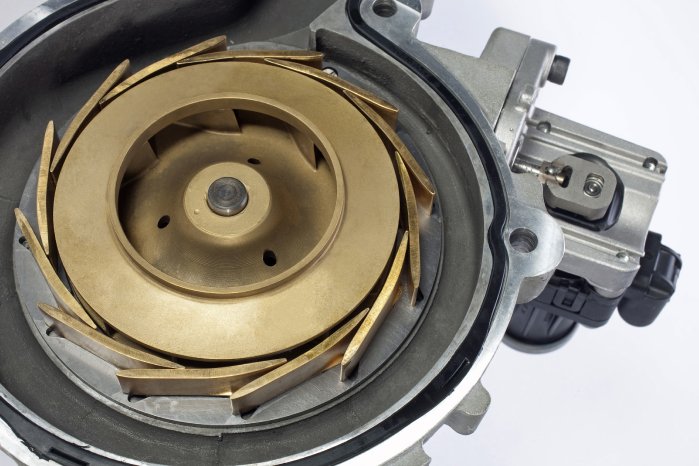Besides its conventional mechanical coolant pumps, Pierburg Pump Technology GmbH manufactures controlled, variable models able to match output to required coolant flow, depending on temperature, engine RPM, and engine load. This is a facility that leads to reduced fuel consumption and exhaust emissions. In their electric version, these pumps have for years now been gaining shares of the car engine market.
Now, specifically for the commercial vehicle sector, Pierburg Pump Technology has come up with a fully variable coolant pump to be unveiled later this year.
Conventional coolant pumps are engineered for maximum engine load at high RPM and hence at low RPM are often oversized. Their output is solely tied to RPM and not to the coolant required by the actual operating conditions of the engine. This means that up to 2 kW of mechanical engine output goes toward the operation of the coolant pump. When it comes to commercial vehicles, there is therefore still some unexploited potential and this is why Pierburg has developed its fully variable mechanical pump. Compared with conventional varieties, it has the advantage that, irrespective of engine speed, it provides the engine with just that amount of coolant that is actually needed. The pump is designed in such a way that an electric actuator regulates the coolant flow.
In combination with intelligent pump actuation, e.g., depending on engine temperature, this is an approach to achieve significant fuel savings under a wide range of operating conditions including cold-start and warm-up.
The coolant pump has an additional adjustable flap unit encircling the impeller and this allows stepless adjustment of the pump's pressure outlet crosssection, from open to shut. In between, any number of positions can be set with the aid of an electric actuator, a geared D.C. motor.
The first prototypes were built at the start of 2009; at that time extensive functional and a series of endurance tests had already been carried out. The necessary adjustable flap unit mounted in the pump calls for a very close analysis of the flow conditions which can be optimized with the aid of CFD simulations. By the end of the year, the fully variable mechanical coolant pump will have been introduced to all the major truck manufacturers.
Disengaging coolant pump with two-stage clutch now on the assembly line In its efforts to reduce fuel consumption entailed by conventional coolant pumps, Pierburg Pump Technology has in recent years developed a number of fresh approaches. For Volvo Truck, for instance, a version with two-stage clutch has been devised that went into series production back in the autumn of 2008 and is being used on this manufacturer's heavy-duty engines with displacements of 11 and 13 liters.
With the aid of an electromagnetic clutch integrated with the pump, the speed ratio between pulley and impeller is lowered by limiting the transmitted clutch torque, depending on engine speed. The lower speed reduces pump energy consumption and this in the final resort leads to vehicle fuel savings of just under one percent.

